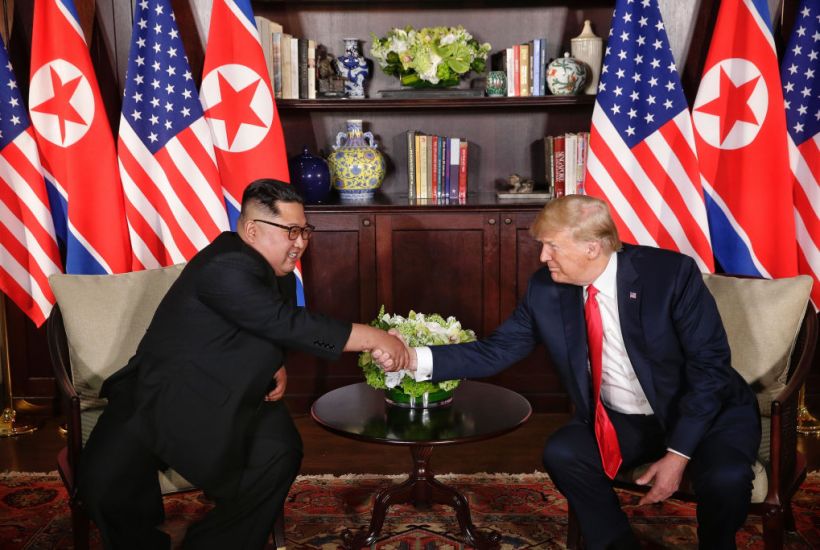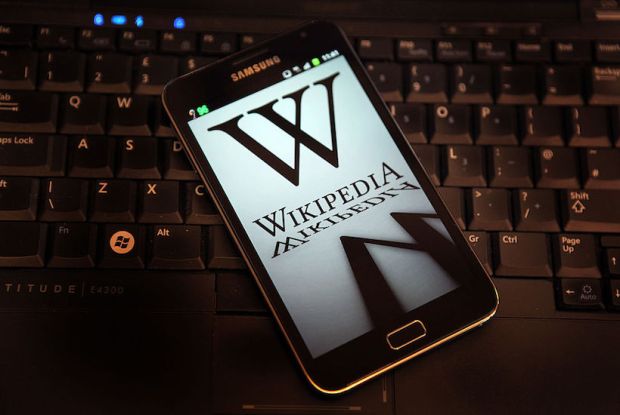The most unlikely shaking of hands threatens to invert the world as we know it, but that may not be such a bad thing after all.
Last week, we saw the first-ever meeting between a North Korean leader and a sitting United States President. Meaningful and historic, undoubtedly. But not in the way you might expect.
At the conclusion of their half-day talks, Donald Trump and Kim Jong-un signed a declaration which traded “security guarantees” from the US for “work towards complete denuclearisation” from North Korea. While critics have rightly highlighted the document’s lack in detail – it offered no specific agreement on denuclearisation, and no promise as to irreversibility or verifiability – the global implications lie deeper than the content of the signed agreement.
In the shaking of Kim’s hand, Trump delivered a sledgehammer to the norms of engagement which the US has seen underpin international relations since the Second World War. It has now been made apparent to bellicose leaders around the globe that to gain a seat at the table, they need only acquire nuclear weapons.
In the midst of the Cold War, the Nuclear Non-Proliferation Treaty was drawn to divide nations into nuclear-weapons states (US, Russia, Britain, France and China) and non-nuclear weapons states (all else). It was through this mechanism that the US instituted its vision of a nuclear-free world; one where states would abandon national security for the greater purpose of international peace and stability. Non-nuclear states where prohibited from developing warheads, while nuclear states committed to a gradual reduction of their stockpiles.
The Nuclear Treaty worked alongside a concept of ‘conditional sovereignty’ to underpin America’s dominant vision for the world. In this process, a pursuit of denuclearisation and the promotion of democracy and human rights formulated the normative base of international interaction. Only in upholding these norms could nations gain legitimacy and resist interference from the world’s new ‘policeman’, the US.
Democratic states such as Japan, South Korea, Singapore and the Philippines were rewarded free trade agreements with the burgeoning US economy, while security guarantees promised survival to fledgeling nations.
In contrast, those nations which failed to uphold the nuclear-free vision, established dictatorships at the sake of democracy or violated human rights were denied entry into the West-centric world. George Bush laid out an “axis of evil” that included Iran, Iraq, North Korea and Syria. Iraq’s Saddam Hussein was overthrown and killed for alleged nuclear activity in 2003, while Libya’s Muammar Gaddafi was similarly assassinated in 2011. The US consistently demanded Bashar al-Assad’s removal after the gassing of innocent Syrians, while President Obama’s ‘strategic patience’ imposed crippling sanctions on North Korea with the aim of pressuring a commitment to denuclearisation.
Essential to this global process was faith in certain values said to unite all in their pure humanity. “When a dictator slaughters tens-of-thousands of his own people, that is not just a matter of one nation’s internal affairs. It breeds human suffering on an order of magnitude that affects us all,” Obama told the United Nations in 2015.
Trump himself echoed this confidence in the commonality of humanity in his speech to the UN in 2017. He urged all nations to isolate the Korean regime: “authoritarian powers seek to collapse the values, the systems and alliances that have prevented conflict and tilted the world to freedom”.
However, with the Trump-Kim summit, there has been a wholesome reversal in US foreign policy. Having long refused to engage with rogue states which pursued nuclear capability, Trump chose to legitimise the most belligerent of them all. Having commenced the year an isolated, globally-derided, war-mongering dictator, Kim Jong-Un left Singapore a world leader with equal credibility in his pursuit of national security. There is no reason to suggest that Syria’s al-Assad and Iran’s Hassan Rouhani weren’t watching and learning.
This has irreparably damaged America’s capacity to enforce global norms. Pyongyang now knows that nuclear armament can allow it to neglect international law and that in resisting economic and diplomatic pressures, the US can be pushed to offer the first concessions. As a product of the summit, Trump promised to end training exercises in South Korea, establish new amicable relations with Pyongyang remove stationed personnel from South Korean territory and guarantee the Kim regime’s security. In exchange for a vague commitment to “step by step, simultaneous action”, this agreement stood in stark contrast to earlier proclamations that “immediate… denuclearisation is (North Korea’s) only successful future”.
What was even bleaker for the US was the gradual deterioration in preconditions imposed on the summit by President Trump. Having first demanded clear steps towards denuclearisation, Trump walked into the meeting room on Sentosa Island with no established expectations.
The floodgates have now opened. On Thursday, Vladimir Putin invited Kim to Russia, while the North Korean leader was similarly afforded a dignified state welcome to China last month. Kim meeting with fellow authoritarians Putin and Xi Jinping would long have been cast a blatant challenge to the international order, however, the US can now hardly cry foul. If Trump can break diplomatic embargo to secure influence within Kim’s office, why can’t Russia and China do the same?
However, perhaps it is impractical to assess Trump’s atypical foreign policy in the context of his norm-upholding predecessors. Indeed, Julie Bishop told me in May that it was Trump’s calculated unpredictability that had delivered vast progress on the Korean peninsula. In denouncing Kim a “rocket man on a suicide mission for himself” and threatening “fire and fury like the world has never seen”, Trump outmatched the volatility of the dictator himself. Where Obama’s diplomatic sensibility had meant Pyongyang could stretch US tolerance with little chance of military consequence, Trump’s tweet diplomacy and blatant impulsiveness meant nuclear confrontation actually became a possible reality.
In this light, there is good reason to suggest the liberal internationalist underpinning to US foreign policy should be forsaken for a more realist outlook. It might well be time to recognise that Western norms of democracy and human rights may be incompatible with the vast diversity that is humanity.
China’s shift towards capitalism was expected to bring it closer to an acceptance of Western norms, however, the adverse has occurred. China envisions a reshaping of the Asian Pacific region, harking back to a time where the regional giant effectively administered the surrounding nations as semi-independent colonies.
In 2016, China dismissed the Permanent Court of Arbitration’s ruling that it held no lawful claim to the South China Sea. That same year, it established the Asian Infrastructure Investment Bank to rival the IMF and provide financial benefit to those nations which accepted its claim to regional dominance. In March, Xi Jinping removed the two-term limit to his presidency and effectively became dictator for life.
This attack on Western norms has included attempts to sway political teachings on Australian university campuses. There is reason to be anxious as to the extent of this influence – a Higher Ed Services analysis revealed that 16 per cent of university revenue stems from the tuition fees of international Chinese students. In 2017, Monash University ceased using a textbook following questioning from China’s consulate-general in Melbourne. A video was also released which showed Chinese students challenging a University of Newcastle lecturer to “show respect”, having categorised Taiwan an independent country.
The effect of this challenge to the US-led norms-based order is substantial. It uproots the very notion that Western values are inherent to all on the basis of pure humanity. Would it not be absurd for the US to continue to pursue this liberal internationalist model when its global pre-eminence is all but lost?
Trump is right to recognise that Chairman Kim was never going to bow to moralistic hectoring and nuclear-free idealism. The dictator cares only for the survival of his regime and makes international decisions on a gain-loss spectrum, not in relation to whether Western norms are furthered.
While Kim has been made a legitimate diplomatic party to the international order, America needed Trump’s new flexibility to overcome the decades-long impasse. Yet, this brings danger as Trump will need to be careful not to encourage a sudden arms race among its foes who seek greater leverage.
What does this mean for the future? America will have to be more pragmatic in its pursuit of influence over far reaches of the globe. As setting the normative bedrock in Asia seems impossible amid the rise of China and as concessions will need to be made to regimes such as North Korea who defy the ‘global policeman’, only the full weight of the US military will retain some authority behind its norms-based order.
It is the recognition of this reality in Trump’s meeting with Kim that might see America step down from its moral pedestal, embrace the chaotic incoherence of the globe and maintain some influence in a changing world.
Got something to add? Join the discussion and comment below.
Got something to add? Join the discussion and comment below.
Get 10 issues for just $10
Subscribe to The Spectator Australia today for the next 10 magazine issues, plus full online access, for just $10.


























Comments
Don't miss out
Join the conversation with other Spectator Australia readers. Subscribe to leave a comment.
SUBSCRIBEAlready a subscriber? Log in